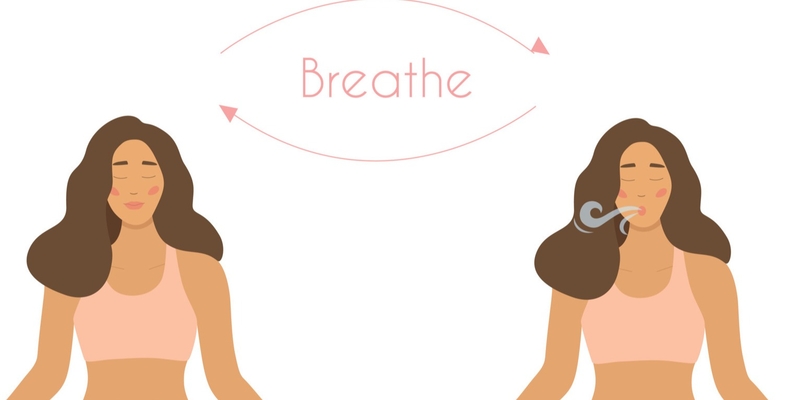An ever-present part of contemporary life, stress has recently arisen as a critical health issue with far-reaching consequences. This article explores the complex relationship between stress and many parts of health, including the immune system, mental resilience, and cardiovascular health. In order to better manage stress and enhance our overall health, it is helpful to have a thorough grasp of the many aspects of stress, including what causes it and the effects it may have.

Stress Causes: Understanding the Triggers
Identifying Common Sources of Stress
Various aspects of life might serve as triggers for the complicated reaction known as stress. We can learn more about the things that might throw us off balance if we can pinpoint these typical causes of stress.
Workplace obligations, such as high expectations, short deadlines, and employment instability, may be major sources of stress for many people. Maintaining a healthy work-life balance is no easy feat.
Anxieties about debt, financial instability, and economic uncertainty may have a significant effect on emotional and mental health. Worry and insomnia may result from financial stress that seeps into many parts of life.
Problems in interpersonal relationships, families, and other relationships may be quite taxing. Chronic stress and negative effects on health might be a result of interpersonal strife.
Psychological and Environmental Stressors
The broad category of "psychological and environmental stressors" includes many distinct types of causes, each of which may have a unique impact on people. Factors like perfectionism, self-criticism, and negative thought patterns are examples of psychological stresses. Chronic stress may be caused by environmental stressors such as pollution, noise pollution, and overpopulation. Individuals may improve their stress management and overall health by learning to identify and appropriately respond to the many different types of stress that people experience.
Health Effects of Stress: A Closer Look
Physical and Mental Impacts of Chronic Stress
Negative impacts on physical and mental health, as well as a host of other issues, may result from prolonged exposure to stress. Experiencing this physically may lead to hypertension, rapid heartbeat, and the secretion of cortisol and other stress chemicals that amplify inflammation. Hypertension, heart disease, and a compromised immune system are some of the health problems that might result from these physiological reactions. Anxiety, sadness, and cognitive deficits are mental health issues linked to persistent stress. Problems sleeping, worsening mental health conditions, and impaired focus and decision-making are all possible outcomes. The significance of stress management techniques is highlighted by the fact that chronic stress has far-reaching effects on both the mind and the body.

Stress and Its Relationship with Chronic Diseases
There has been a lot of focus in health studies on the complex relationship between stress and chronic illnesses. Numerous ailments, such as diabetes, obesity, and autoimmune disorders, have been associated with chronic stress. The development and course of these disorders are mostly influenced by stress-induced inflammation. Furthermore, stress may worsen symptoms in those who are already dealing with chronic ailments, which can have a devastating impact on their overall health. Recognizing the link between stress and long-term health problems highlights the need to take preventative measures to reduce stress. A better and more resilient future may be achieved by people by reducing the negative impacts of stress.
Managing Stress Impacts: Effective Strategies
Lifestyle Changes for Stress Reduction
Reducing the effects of stress necessitates a comprehensive strategy that includes necessary adjustments to one's way of life. Engaging in regular physical exercise is essential for stress reduction because it triggers the production of endorphins, which are natural chemicals that elevate mood. In addition to lowering blood pressure and improving heart health, exercise also relaxes muscles. A healthy, balanced diet is just as vital as exercise since it gives you the fuel and mental fortitude to deal with life's inevitable challenges. Mood swings might be better managed if you cut less on sweets and coffee. An additional critical component is efficient time management, which includes things like making a list of to-dos, ranking them in order of importance, and establishing regular relaxation breaks into one's schedule to help one feel more in charge and less stressed.
Psychological Approaches to Stress Management
When it comes to controlling and lessening the effects of stress, psychological techniques provide invaluable tools. In order to successfully navigate life's obstacles, these methods tap into the power of the mind. Deep breathing exercises and meditation are examples of mindfulness activities that promote relaxation and present-moment awareness; these qualities have a calming effect and improve mental clarity. Individuals may benefit from the systematic method of cognitive-behavioral therapy (CBT) in recognizing and combating unhelpful ways of thinking. It teaches kids how to deal with difficult situations and how to solve problems effectively. People may learn to relax and reduce their stress levels with the use of stress reduction methods, including biofeedback, guided imagery, and progressive muscle relaxation. A great tool for dealing with stress is social support, which may come from a variety of sources, such as friends, family, or support groups. One way to strengthen mental resilience is to talk about problems and reach out for emotional support. This may help with things like stress and feelings of loneliness. Individuals may build a robust toolbox for stress management by integrating these behavioral adjustments and psychological techniques into their everyday routines. This will promote a balanced and resilient well-being.
Conclusion
Nowadays, stress is everywhere, and it has a major impact on our mental and physical health. The article has provided insight into stress's origins and effects, highlighting the need for stress management. We have provided a variety of ways to reduce the impact of stress, including the identification of frequent triggers and an understanding of its complicated health implications. Everyone has the power to overcome the obstacles that stress presents, whether it's via making adjustments to their way of life, using psychological tactics, or reaching out to others for support. We can create a future that is healthier, more balanced, and more robust if we adopt these techniques.







